The political nature of collecting urban sanitation cost data
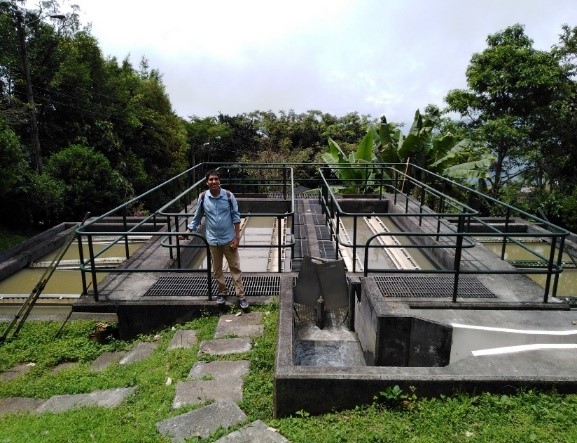
Erick Corimanya and Elon Sooknanan, students, Master of Science in Water, Sanitation and Health Engineering
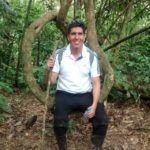

*This post is about research conducted as part of Master of Science in Water, Sanitation and Health Engineering final projects, supervised by Professor Barbara Evans*
As students on the MSc in Water, Sanitation and Health Engineering, we were privileged to be part of the Climate And CosT in Urban Sanitation (CACTUS) research project. Our role was to gather costing data from water and sanitation companies in urban settlements in Latin America and the Caribbean.
Erick – Peru & Colombia
After 4 planes, 20 hours flying and just 2 hours of sleep I finally arrived in Cusco, the ex-capital of the Inca Empire. This is one of the largest cities in Peru and my hometown. The lack of air is not a myth, I felt it immediately upon meeting my family at the airport at Cusco, which is over 3,500 metres above sea level.
The chosen town for my research fieldwork is in the region of Cusco, and here, as it is throughout the country, every four years the council officials and most of the working staff are removed and replaced by new people. This was a challenge for my research fieldwork as the water company is council owned and there was a new administration, thus my contacts with whom I had planned interviews had been replaced with new officials.
As such, my previous coordination by email and phone were unknown by the new managerial staff. On my first approach to the office, they were initially a bit reluctant to agree to my request for an interview. They did not say no, but they kept postponing the day for the interview.
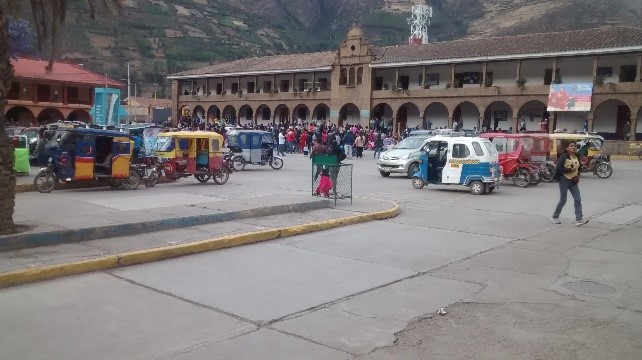
Main Plaza of the selected town in Cusco-Peru
The scenario at the moment of my arrival to the town was that the water and sanitation service provider was trying to increase the number of meters installed in households. However, the population represented by the so-called "Defenders of Rights" (local group Frente de Defensa de los Intereses de la Provincia) were opposed to these meters.
The Defenders argue that the quality of the water supply should be increased before people accept meters in their homes. However, the National Regulator are rolling out this compulsory measure because believe the installation of meters will save water. Currently, households are using four-times more water than it is projected they need, possibly because they are paying a flat rate. If households have to pay for the volume of water they use then it is expected that usage will decrease.
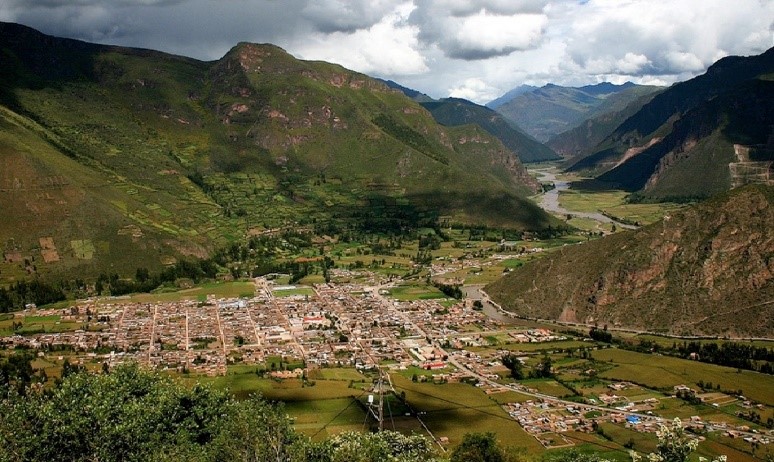
Aerial view of the Urban Settlement selected for research in Cusco-Peru.
This clash between the utility, local organisation and regulator meant that any release of information from the company was going to be difficult. Due to this ongoing argument on such a sensitive issue, the manager wanted to be assured that he was not under scrutiny. After a long chat with the manager of the company and explaining the objectives of the study (exclusively for academic purposes), he finally (thankfully) agreed to have the interview.
Once I had assuaged his worries, I was able to get valuable information about the sanitation system, operation and maintenance costs and often met technicians whilst they were working on the system.
The second stop of my itinerary was an urban settlement in Colombia located 4 hours away from Medellin. As is customary in Latin American, I arrived with small gifts from Peru for my contacts in Colombia. I took Pisco (National Peruvian Spirit) and some bars of chocolate to make a hot drink, which are very common and consumed for breakfast and dinner in Colombian homes. The Colombian people were very friendly and willing to provide me the requested data. However, due to it being the current administration’s last year in office (a similar political system to Peru) they also were very careful about the information they provided. Despite the letter provided by the University outlining the aims of the study and the confidentiality of the information received, it was evident that they mistrusted me and doubted the real intention of myself as a researcher. Their distrust and fear that negative information about the company (and thus themselves personally) is published is understandable - even more so considering that it will be known internationally. I managed to gather the information needed for CACTUS and as required for my dissertation, despite the process taking more of an effort than originally anticipated. The language was important, working in my native language of Spanish was essential and it made it easy to talk with people and sometimes to convince them.
Elon – Guyana
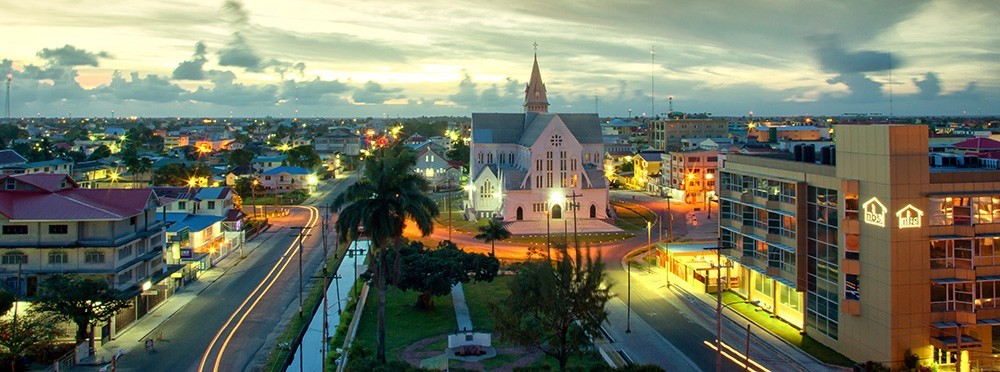
Aeriel view of Central Georgetown
After departing Leeds, it took me about 14 hours to arrive in Guyana via London and Miami. The city of Georgetown where I conducted my fieldwork is located on the mainland of South America. It stretches along the Atlantic Coast with an estimated population of 312,000 residents. My journey to the city began at six in the morning and usually lasted about one and a half hours.
At that time, like me, other motorists were hustling to cross the Demerara Harbour Bridge to avoid the early morning traffic congestion. Since my aim was to gather cost data for onsite and offsite sanitation, I would usually peep every now and then into the yard of residents of Greater Georgetown to get a glimpse of anything that looked like a latrine or septic tank. This was routine for twenty days. At last, I confirmed what I already knew, that residents of Greater Georgetown utilise onsite sanitation services, unlike residents in Central Georgetown, who utilise the sewerage system.
Due to my professional and social affiliation with individuals who monitor and control the said data, I was confident that I would have easy access to the data, and well within the stipulated time frame. However, this did not materialise as planned and as such I was in for a rude awakening. The private sanitation service providers were very accommodating throughout the data collection process but the information needed was not forthcoming, it took longer than anticipated. Further, during the data gathering process, I learnt that both service providers had entered into a joint-venture to construct a wastewater stabilisation pond (WSP). With this mentioned, I was able to provide guidance on the design and construction of the said system since I had received training during my course module Wastewater and Faecal Sludge Management. The guidance offered to the stakeholders changed the nature of the relationship and thereafter information which was pivotal to me began to flow.
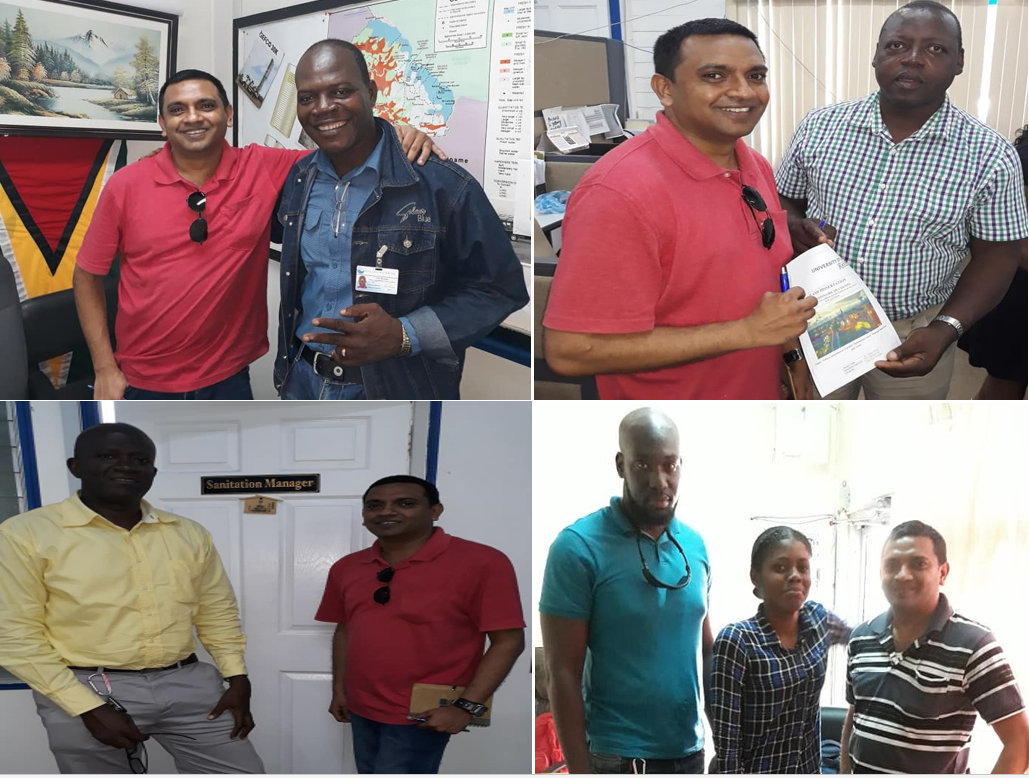
Meeting with staff of on-site and off-site sanitation service providers
On the other hand, my experience was the opposite with the Guyana Water Inc., the sole sanitation service provider for Central Georgetown, via a sewerage network. This network caters to approximately 60,000 residents. It was unfortunate and distressing when I turned up for a scheduled meeting to be told that it would be re-scheduled. When the meeting finally happened, I only managed to gather general data, all that officials said they were able to share with me.
During this session, I confirmed that the Georgetown Sanitation Value Chain has been broken as it relates to treatment. Wastewater and faecal sludge are disposed-of untreated into the Demerara River and the Atlantic Ocean. Obtaining specific cost data required the CEO’s approval; although emails were sent to the CEO there was no response. In addition, I requested a meeting with him but it was not approved. Since the off-site cost data were not accessible it limits the scope of my dissertation. However, the data gathered is much appreciated since it is of vital importance for this project and for future research and development.
Summing up
Doing fieldwork is not a simple task. Despite all of the plans made beforehand, unexpected situations occur. Our experiences during fieldwork were similar in many ways, with varying challenges, but eventually we were able to accomplish our tasks. The data gathered from these countries is priceless. We have been privileged to participate in the CACTUS project in strengthening its initiative by adding data to the existing database. The data collected will be used in a constructive manner to complete our dissertations and to make informed decisions in the larger research project moving forward.
